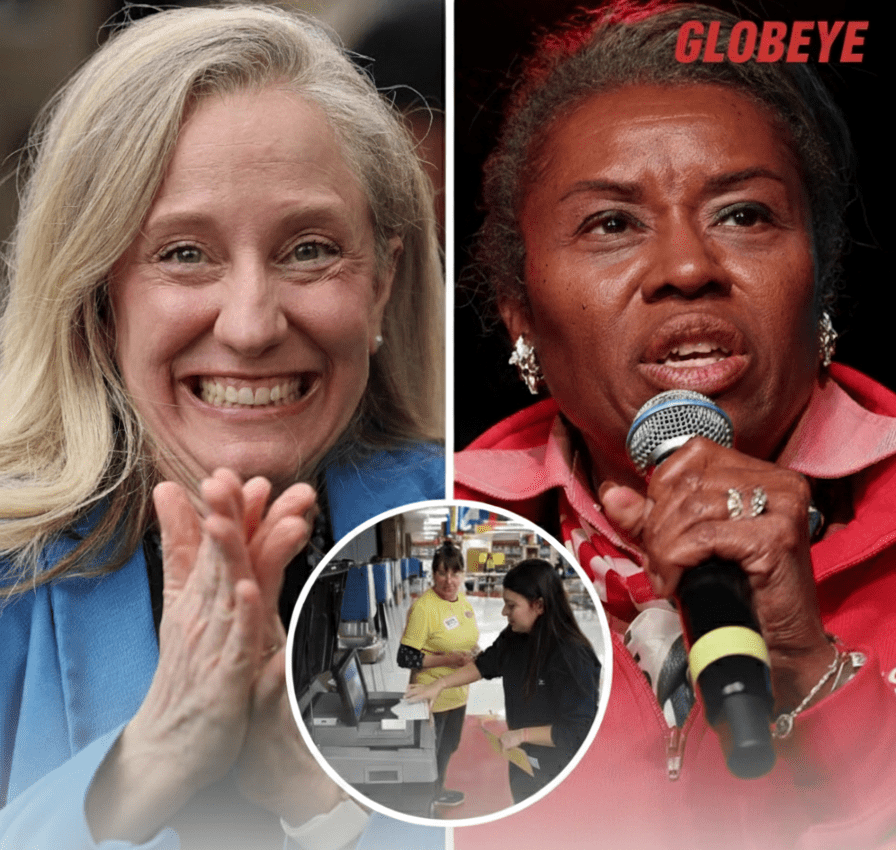Abigail Spanberger Wins Virginia’s Governorship and Becomes the First Woman in 400 Years to Hold the Office, Leaving the Republican Party Scrambling
In a quietly seismic moment for American politics, the voters of Virginia have handed the keys to the governor’s mansion to Abigail Spanberger, a former CIA case officer and U.S. congresswoman, who will become the first woman ever elected governor of the Commonwealth of Virginia. That alone would be historic. But the implications run deeper: she defeated Winsome Earle‑Sears, the state’s lieutenant governor and a rising figure in Republican circles, thereby flipping the governorship after a four-year GOP reign under Glenn Youngkin. For the Republican Party, this is a moment of reckoning.
Spanberger’s win did not come merely from novelty — the 46-year-old mounted a disciplined, centrist campaign that resonated across party lines. She emphasized bipartisan cooperation, fiscal responsibility and a rejection of chaos politics. Exit polling and early returns showed she held a consistent double-digit lead over Earle-Sears, a margin that reflected serious voter concerns about economic stability, education and the broader national mood. Virginia has long been treated as a political bellwether, and this election may well serve as a barometer for the 2026 midterms. Her victory sends a message: voters are looking for substance, not spectacle.

For Republicans, the implications are sharply negative. The party now faces tough questions about its strategy, especially as it grapples with how to appeal to moderate and suburban voters — demographics that once served as its backbone in the Commonwealth. Earle-Sears, despite her credentials as a conservative trailblazer and former Marine, could not overcome the headwinds of her party’s national image or the narrative of unsteady leadership floating around the GOP. Spanberger’s win underscores how vulnerable the party is, even in states it held just a cycle ago.
The mood inside Virginia’s Democratic campaign headquarters was one of exhilaration and cautious optimism. Supporters swept into rallies chanting “First Woman Governor” and celebrating a milestone long awaited by generations of voters. But inside, the campaign team emphasized that breaking the glass ceiling was just the prelude. Spanberger plans to take office in January and hit the ground running — with a focus on holding the line on taxes, expanding access to health care and ensuring local schools aren’t left behind. She told supporters that “we sent a message to every corner of the Commonwealth… that in 2025, Virginia chose pragmatism over partisanship.”

Campaign tracking data told a consistent story. Polling in recent weeks had put Spanberger ahead by roughly nine to ten points, margin of error included. Analysts attributed her strength to early momentum, strong fundraising and an image of stability in a year marked by anxiety over inflation, government shutdown threats and cultural turmoil. Meanwhile, Earle-Sears never managed to break through the perception that her candidacy was tied too closely to national politics and polarization. The hunger among voters for a steady, pragmatic hand appears to have guided their decision.

The timing is significant. Virginia’s election comes at a moment when national political fatigue runs high. Voters are weary of headline-grabbing feuds, shutdown crises in Washington and leadership that seems more performative than constructive. Spanberger’s campaign offered the promise of dealing with real issues: cost of living, education, infrastructure and bipartisanship. That message resonated. For the GOP, it is a stark warning: winning on national culture-war themes may not be enough when the kitchen table issues dominate.
Republican operatives are now re-examining how their narrative and messaging landed. For years they counted on suburban growth and immigration trends to bolster their ranks, but in Virginia, those voters seemed less motivated by the national brand and more by local competence and reliability. The loss pushes the party to re-assess its playbook, especially as it looks ahead to the midterms in 2026 and the 2028 presidential cycle. Whether they adapt remains to be seen.

The message to voters in Virginia and beyond is clear: milestones matter, but they also spawn expectations. Spanberger’s election as the state’s first female governor is historic and headline-grabbing — but her real test begins now. Delivering on bipartisan promise, balancing budgets, tackling inflation and rebuilding trust in government will define her term. For Democrats, the win provides momentum and a model of moderate, disciplined politics that might transfer to other purple states.
For Republicans, this loss is more than a swing state setback. It is a signal that even seemingly safe ground is slipping unless the party can connect with voters who are hungry for functionality rather than flash. The stakes are national. In Virginia, the voters looked at both candidates and chose the one whose campaign felt more anchored in results than rhetoric. That choice could ripple outward beyond January’s inauguration.

As Virginia pivots to a new era, the nation watches. The Commonwealth, with its deep history and symbolically potent election, may prove to be a microcosm of the larger American project — where leadership is judged by delivery, not drama; by trust, not theatrics; and by competence, not slogans. Abigail Spanberger’s victory is historic. But her true legacy will be built in office, not on the campaign trail. Republicans must take note: the game has changed, and the path forward may be narrower, steeper—and less forgiving.



